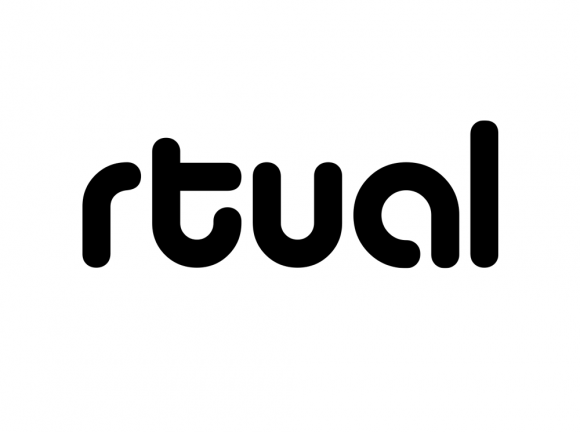Um dir ein optimales Erlebnis zu bieten, verwenden wir Technologien wie Cookies, um Geräteinformationen zu speichern und/oder darauf zuzugreifen. Wenn du diesen Technologien zustimmst, können wir Daten wie das Surfverhalten oder eindeutige IDs auf dieser Website verarbeiten. Wenn du deine Zustimmung nicht erteilst oder zurückziehst, können bestimmte Merkmale und Funktionen beeinträchtigt werden.
Die technische Speicherung oder der Zugang ist unbedingt erforderlich für den rechtmäßigen Zweck, die Nutzung eines bestimmten Dienstes zu ermöglichen, der vom Teilnehmer oder Nutzer ausdrücklich gewünscht wird, oder für den alleinigen Zweck, die Übertragung einer Nachricht über ein elektronisches Kommunikationsnetz durchzuführen.
Die technische Speicherung oder der Zugriff ist für den rechtmäßigen Zweck der Speicherung von Präferenzen erforderlich, die nicht vom Abonnenten oder Benutzer angefordert wurden.
Die technische Speicherung oder der Zugriff, der ausschließlich zu statistischen Zwecken erfolgt.
Die technische Speicherung oder der Zugriff, der ausschließlich zu anonymen statistischen Zwecken verwendet wird. Ohne eine Vorladung, die freiwillige Zustimmung deines Internetdienstanbieters oder zusätzliche Aufzeichnungen von Dritten können die zu diesem Zweck gespeicherten oder abgerufenen Informationen allein in der Regel nicht dazu verwendet werden, dich zu identifizieren.
Die technische Speicherung oder der Zugriff ist erforderlich, um Nutzerprofile zu erstellen, um Werbung zu versenden oder um den Nutzer auf einer Website oder über mehrere Websites hinweg zu ähnlichen Marketingzwecken zu verfolgen.



Many people have a place in their personal environment where they keep special mementos – a personal altar that is supposed to increase the sense of well-being in that particular place. But many of these archetypal objects, such as letters, photos or music, hardly take analog format in the digital age, but are archived on virtual storage and often get lost in the data chaos.
Therefore, I developed a concept and elaborated it in the context of my final thesis.
The rtual application offers the possibility of capturing digital texts, images and sounds that have a symbolic value in an interactive collage that can be accessed and modified online anytime and anywhere. In this case, however, online does not mean that the public would have access to its own virtual altar. This is because the application is not intended as a new kind of blogging or web design tool that makes it easier to attract special attention. There are already enough useful, but also questionable portals and tools that make it possible to present oneself in any form to the virtual world and to communicate with it. rtual is meant to be the complete opposite. It represents an extremely intimate place, which is intended only for the user personally and can fulfil its purpose only under this condition.
Those who own a diary will understand how valuable it can be to write down thoughts, save special photos and the like and to be able to fall back on them at any time in order to revive intense emotional experiences and to make change conscious.
The user writes, selects and collects only for himself, without having to hide or consider anything.
In addition, a public database offers a diverse selection of elements that anyone can use individually. By collaborating with authors, photographers, artists, designers, musicians, cultural or even commercial institutions that can identify with the philosophy of rtual and at the same time guarantee an aesthetic or content quality based on it, the user can be offered a constantly growing resource of creative and inspiring elements.
The rtual application enables the progressive internet user to keep a multi-media life journal and at the same time to reflect in a creative and contemporary way in the age of new media – in a light-hearted and above all private act of self-reflection.
„Manoj, do you still go to church, or do you at least pray occasionally?“ This annoying but at the same time familiar question from my mother, who is firm in her faith, usually results in me thinking about my personal spirituality, with the intention of being able to explain it better. Because this proves extremely difficult every time, I simply answer „I don’t need to be part of a religious community to feel better, because faith is a private matter for me.“ Am I just claiming this to avoid having to justify myself further or am I convinced by what I am saying? If so, shouldn’t I at least be able to answer for myself what this private matter looks like?
Certainly, there are views, people, places and other things that offer me both positive strength and support in life and that I should reflect on, not only in difficult times. Yet I rarely practise this reflection and rather unconsciously. Therefore, it would certainly be helpful if there were a way to visualise these personal values in an appropriate way, to archive them and thus interact with them more often. Then the aforementioned private matter would perhaps no longer just describe an empty word, but would have permanence and form – for myself…